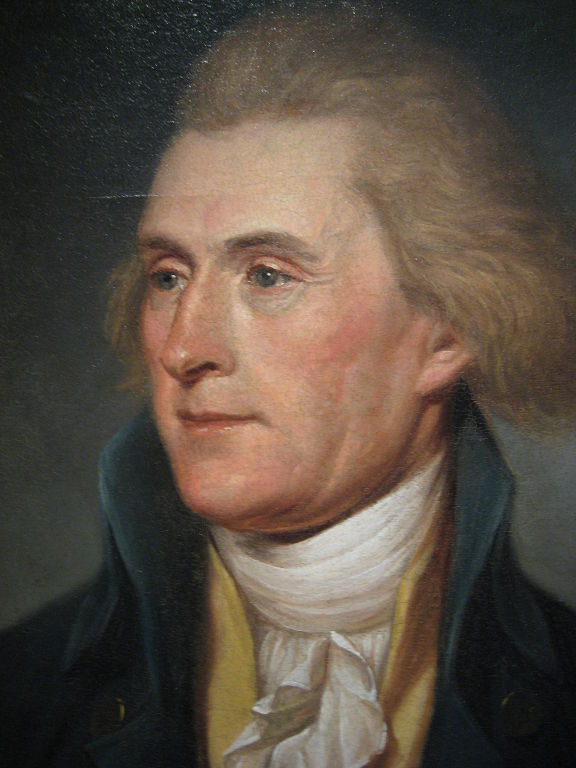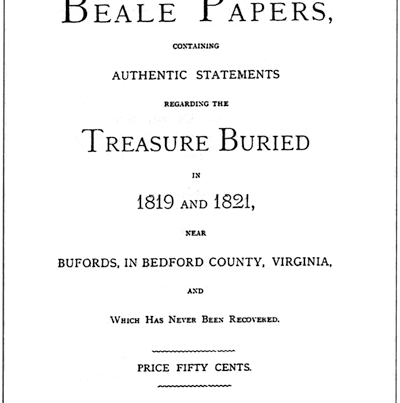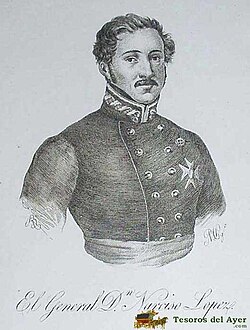It is the task of historians to create what might be dubbed useful “fictions”—the “isms” of history, like colonialism, imperialism, liberalism, stadialism, and medialism.
What is an ism?
Philosopher and psychologist William James is noted for stating that an infant’s first experiences with the world are essentially “a blooming buzzing confusion.” As the infant matures and interacts with adults, he slowly begins to differentiate objects through grouping them into kinds by noting distinctions between “things.” A puffin, for instance, much looks like a penguin, but it is not, for the latter is much larger and cannot fly. It is through interaction with things deemed independent of him and with those others of larger experience with those things that the infant as a youth and then an experienced adult comes to know the world around him.
Yet the isms of historians are much unlike puffins and penguins. They are unwieldy, slippery, and they often answer more to the psychological eccentricities of historians than they do to reality.
Why is that the case?
That is so because historians’ subject is the past and no historians have direct access to the past. They garner what relevant data that are available—and revisionist historian often have a very pliant view of what makes data relevant (viz., relevant = is not disconfirmatory of my thesis)—and try to create a coherent story, answerable to the facts. It goes without saying that historians tend to write about topics that interest them and so their motivation is not disinterested. Their narratives reflect that. I illustrate by reference to the larges Southern figure in American history—Thomas Jefferson.
Jack McLaughlin’s Jefferson and Monticello: The Biography of a Builder is a fine illustration of a highly successful narrative. McLaughlin culls a subject heretofore never attempted (a biography of Jefferson through his activities as a builder, not architect), narrows his narrative to the building and rebuilding over the decades of Monticello (both to keep from fictive claims and because there is a large amount of data readily accessible to any scholar inclined to undertake such a project), and covers his account with a thoroughness and attention to minutiae that is beyond the ken of lazier scholars. In short, McLaughlin tries not to do too much, and what he does do is thorough, coherent, and highly informative. Moreover, the prose is light and lively.
Pete Onuf’s The Mind of Thomas Jefferson is a fine illustration of highly unsuccessful book. The title promises insight into Jefferson’s mind, but we are merely told throughout that Jefferson was such an epistolary chameleon that no historian can have access to a “true Jefferson.” The best that any historian can do is construct a “possible Jefferson”—an account of Jefferson that seems merely to be guided by one historiographical consideration: consistency. Anything, thus, goes, so long as, in keeping with Onuf’s unabashed detestation of Jefferson, that no historian ends with an account that depicts Jefferson as an estimable figure. Moreover, the book is an omnium gatherum—that is, a loose compilation of essays thrown together without much regard for continuity, hence, my reluctance to use the term narrative.
Yet, an ism is not a narrative. It is itself a sort of narrative that glues together the narratives of historians on a particular topic. As no narrative, taken as a whole, can be a true account of some person or event, isms as metanarratives are too useful fictions, where “usefulness” is not arbitrary, but answerable to correspondence with reality. Thus, it is fair to say that some narratives are “truer” than others. When historians do their job—e.g., in the case of Dumas Malone’s six-volume biography of Jefferson—the facts themselves will be suggestive of the sort of glue—i.e., the narrative—needed to bind them. When facts are few or when historians do a poor job of gleaning them—e.g., in the case of Onuf’s The Mind of Thomas Jefferson—there will be an indescribably large number of narratives consistent with the facts.
When historians approach their discipline with integrity and guilelessness, the various narratives on some person or event will allow certain isms as metanarratives and disallow others. This in effect is realist history—what I dub history from below.
When historians politicize their history, they begin with isms qua metanarratives and frame their narratives in pursuance of that ism. This in effect is Postmodernist/Progressive history—history from above.
Consider, for illustration, the vogue of “racism” today in American history—especially when considering narratives of the American South. It is a covering term, brought into play from above, and it is seen, at least in American history, to be something that must be invoked in any historical narrative of an American figure or event. Can any historian publish a biography of John Calhoun in a prominent university press without much discussion of his racism? That is not allowed.
Racism today is in some sense explanatorily rich in that it is used to explain many things about American culture. In Jeffersonian scholarship, racism has been invoked to explain why Jefferson freed too few of his slaves throughout his life, why he maintained that Blacks were deficient in imagination and intellect, and even why Jefferson employed grids and octagons in his architectural sketches.
Yet while racism is a much-employed term, it does very little etiological work, because paradoxically it explains too much. Consider this snippet from Joe Ellis, “[Notes on Virginia] contained the most explicit assessment that Jefferson ever wrote of what he believed were the biological differences between blacks and whites, an assessment that exposed the deep-rooted racism that he, like most Americans and almost all Virginians of his day, harboured throughout his life.” Again, Jake Silverstein, editor-in-chief of New York Times Magazine, everything that is uniquely American is grounded on “anti-black racism”:
Out of slavery—and the anti-black racism it required—[there] grew nearly everything that has truly made America exceptional: its economic might, its industrial power, its electoral system, its diet and popular music, the inequities of its public health and education, its astonishing penchant for violence, its income inequality, the example it sets for the world as a land of freedom and equality, its slang, its legal system and the endemic racial fears and hatreds that continue to plague it to this day. The seeds of all that were planted long before our official birth date, in 1776, when the men known as our founders formally declared independence from Britain.
Here we come to find that the actual founding of the United States was not in 1776, but 1619!
Some comments are in order.
If we return to Ellis’ comment, then if almost all Virginians and most Americans thought that Blacks were racist, then that does no more than to tell us that almost all Virginians and most Americans thought that Blacks were inferior to Whites, and that must include Blacks’ perception of themselves. In Query VIII of Notes on Virginia, Jefferson notes that the ratio of Whites to Blacks in Virginia at the time of his writing was about 11:10. If we follow closely Ellis’ lead, by implication, most Blacks considered themselves inferior to Whites.
To revisit Silverstein’s sentiments, all things that have made America what it today is have been caused by its anti-black racism. What then are we to say about South America and the Caribbean, both of which received many more slaves than North America? What are we to say about England, which had been shipping, by the tens of thousands, slaves (both white and black) to the Americas over the decades? What are we to say about black African princes who eagerly engaged in the slave-trade practice and monetized handsomely by such engagement? Those are questions ignored by 1619 true believers.
One might, of course, address Silverstein’s wording: “Out of slavery—and the anti-black racism it required—[there] grew….” Is this a causal claim? If not, it is merely a relaxed way of stating temporally that slavery was in North America early in the seventeenth century prior to the United States becoming an economic superpower and then we are invited to consider the argument as an instance of the post hoc fallacy: one thing occurred prior to others, so that one thing is the cause of those others. If so, and that seems to be the best way to take the slippery claim, then slavery was the seed out of which all the evils of which America is composed. Nothing much, it seems, good came from that seed.
And so, if temporal, the claim becomes irrelevant, since it states merely that some events came after another. Yet if causal, the claim is irresponsibly absurd. I illustrate below.
Let us flesh out causally Silverstein’s argument.
- America is noted for its economic might, industrial power, electoral system, diet, popular music, inequities of its public health and education, penchant for violence, income inequality, global example of freedom and equality, slang, legal system, and endemic racial fears and hatreds.
- All such things define America.
- Black slavery has been around America since 1619 and prior to development of the things that define America.
- So, all such things that define America have been caused by slavery.
- Slavery is essentially anti-black racism.
- So, anti-black racism has given rise to everything (or “nearly everything”) that defines America.
That argument is perhaps the most absurd and vacuous argument that has ever been made about the United States. Claim 1 is too vague to be helpful. Is claim 2 saying that each of the attributes limned is uniquely American or that they, taken together, define America? If the first, the claim is patently false. Claim 3 is true. Claim 4 is the puzzler. Because black slaves have been around Colonial America prior to the “birth” of the nation and to development of those things that have come to define America, it is the cause of America’s defining features. Claim 5 too is manifestly false and that is obvious to anyone who takes the time to study slavery across the globe over the centuries of human existence. The conclusion of this paralogism, this post hoc fallacy, nowise follows.
The argument insultingly preys on human emotions at the expense of human rationality. The absurdity of 1619 argument is shown by substituting “tobacco” for “racism.” It is commonly known that the earliest American settlement at Jamestown suffered numerous calamities and was saved only by businessman John Rolfe’s introduction of new tobacco seeds, Nicotiana tabacum with its nicotine, to replace the unpopular Nictotiana rustica. Rolfe grew the new species of tobacco at his farm, Varina, near Jamestown, and the popularity of that tobacco in England made Rolfe rich and gave Jamestown—a settlement again and again devastated by war, disease, and drought—a new lease on life.
- America is noted for its economic might, industrial power, electoral system, diet, popular music, inequities of its public health and education, penchant for violence, income inequality, global example of freedom and equality, slang, legal system, and its love of growing tobacco.
- All such things define America.
- Tobacco has been around American at least since 1612 (at Jamestown) and prior to development of the things that define America.
- So, all such things that define America have been caused by tobacco, which depletes soil of key essential nutrients.
- So, growing tobacco is essentially destruction of soil.
- So, destruction of soil has given rise to everything (or “nearly everything”) that defines America.
The silliness of this argument is obvious to all. However, the silliness of the 1619 argument should be equally as obvious. It is not, and that is frightening to any person with a scintilla of rationality!
The claims of Ellis and Silverstein are illustrations of an explanation explaining too much—postmodernism or use of isms or metanarratives to drive history. What are we to say about a country in which almost all persons, Blacks included, were racist? How aidful is that in showing why slavery took root and flourished for a few centuries in America? Again, what are we to say about the claim that black slavery, because it was around since 1619, caused all things, good and bad, that are considered uniquely American? How exactly was Graham Bell’s invention of the telephone related to American racism? How exactly was James Watson’s double-helix model of DNA related to American racism? Why are not such key events linked to depletion of American soil?
It is not astonishing in the historiographical climate of Postmodernism/Progressivism, where currently fashionable isms, like racism, are recruited, as it were, to explain everything about the American past, that narratives of key Southern figures and events have any veridical content.







Dr. Holowchak,
Wonderful analysis and article. The only problem is that most of the people who bellow “racism” the loudest don’t know deduction from seduction.
Witty comment, and I love it!
unlanded whites couldnt vote in virginia until 1851 i think.
Accusations of racism against white people are used to destroy our defenses so that other races can run roughshod over us. Non whites never have to prove that they’re not racist.
If we look at the fifty five black countries in Africa and consider what Africans create where ever they go then we may conclude that they should not be allowed to run for public office in a white country. White people create the same things where ever we go. USA, Canada, South Africa, Australia etc.
Isn’t this logical? But we’re not allowed to be logical for we must be Politically Correct in deference to sensitive non whites even though there is no evidence of their sensitivity.
The goal must be to destroy all our defenses until we get to the point of forced race mixing after all the voluntary race mixing has already happened. I think we should opt out of the diversity thing since it doesn’t work for us.
This jungle beast should never have been brought to our land.
I shared your comment on my Facebook wall 4/6/23 in the heading of this article.
Rhodesia is a great example; “Racism” was fully weaponized by the East and West to destroy it. A white-run government that could still function even when cutt off from the rest of the world (especially UK and USA). Innovation/invention still occurred. Rhodesia just didn’t have enough to survive when another front opened up in the war.
…
Fast forward to black-run Zimbabwe, and there’s immediately a black-on-black genocide called “gukurahundi”.
I don’t think the woke goal is just forced race mixing. I think the target is complete white genocide. Race-mixing’s role is to greatly reduce the white population. The evident white genes are recessive. The rest of their plan is fomenting so much hate for whites, that all other peoples kill them off.
After the tobacco plant has depleted the soil of its resources, it’s useful for something.